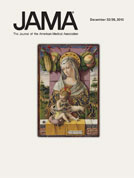 The journal Blood has two retractions this month, one of which seems particularly interesting. So let’s deal with the other one first.
The journal Blood has two retractions this month, one of which seems particularly interesting. So let’s deal with the other one first.
The paper, “MicroRNAs 15a/16-1 function as tumor suppressor genes in multiple myeloma,” appeared online in October 2010. But according to the retraction notice, the authors
have recently discovered that the cell lines used in their paper were inadvertently misidentified. The cell lines utilized in the paper have now been found to contain the bcr/abl translocation and most likely represent the K562 CML cell line, instead of MMS1 and RPM1 myeloma cell lines. Due to this issue, the relevance of the findings to myeloma and thus, the conclusions of the paper, are not supported by the data. The authors apologize to the readers, reviewers, and editors of Blood for publishing these erroneous data.
That seems straightforward enough, and we couldn’t find any evidence that this problem affected other publications.
The second paper, however, could be more significant. Continue reading Blood retracts two, including a disputed paper from the Karolinska Institute








